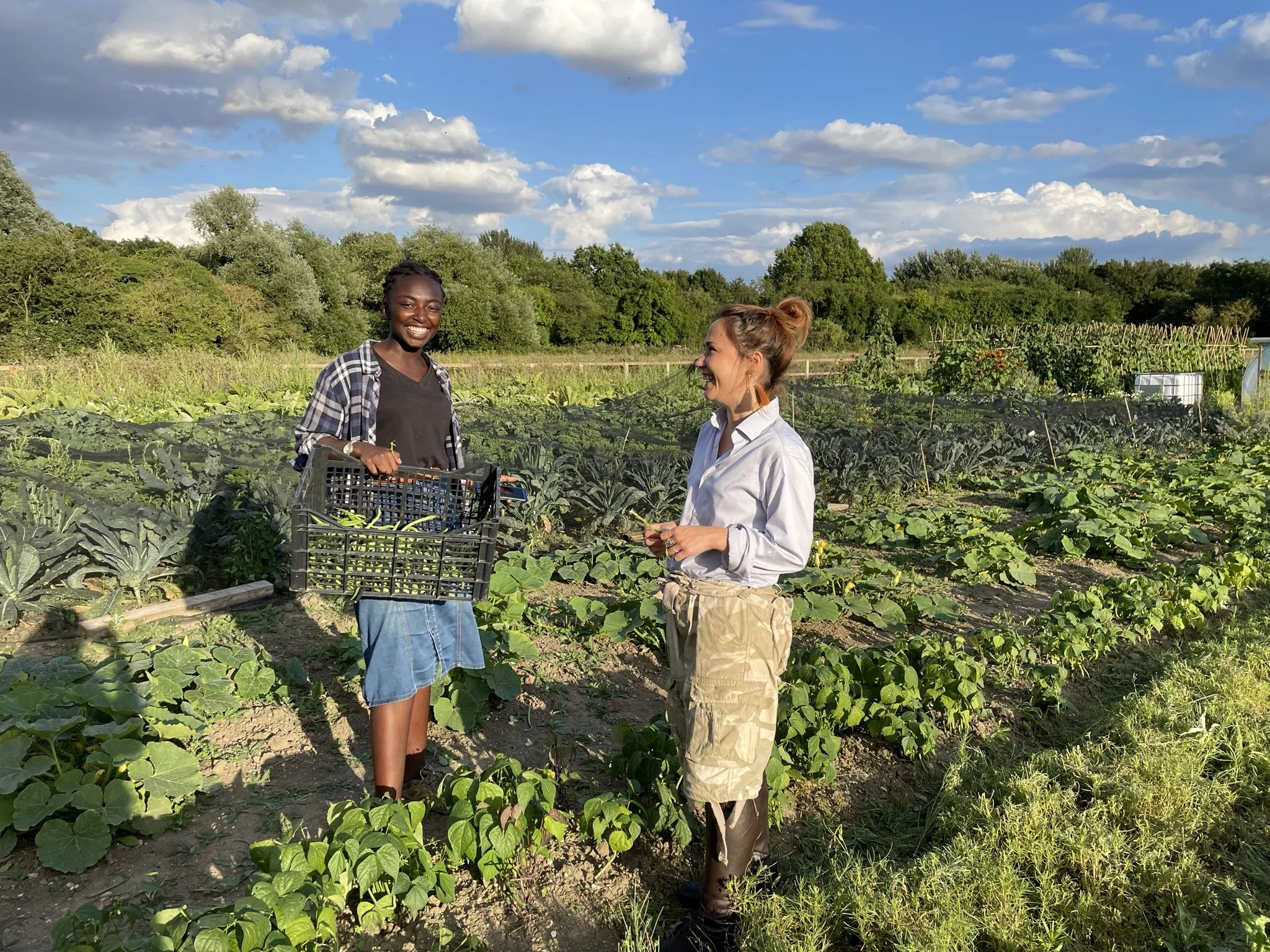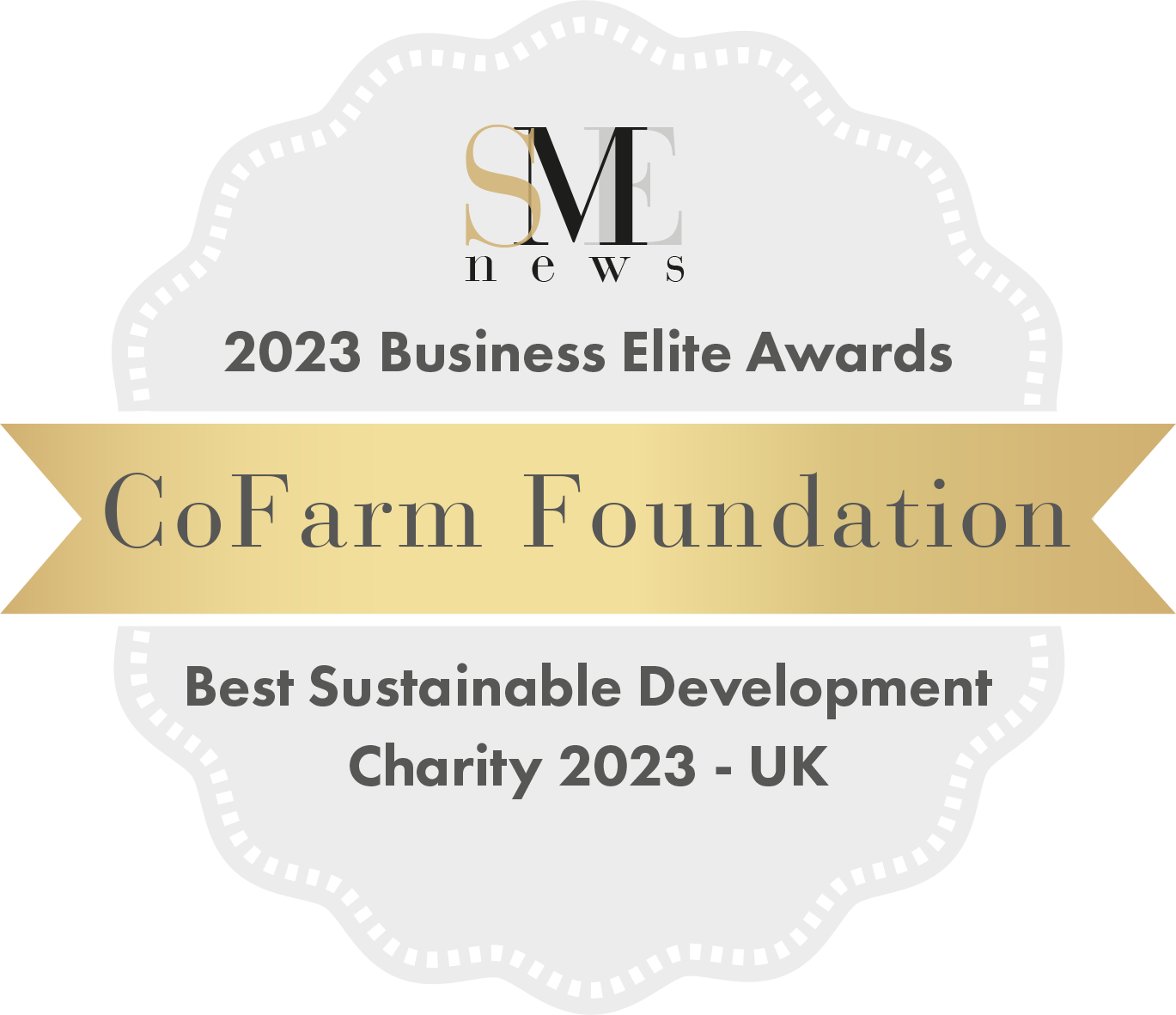CoFarm Foundation has now been entered on the Charity Commission’s register of charities, a major milestone that means the Foundation is now a registered charity in England and Wales.
The Foundation has become the third registered charity – out of more than 185,000 – to make explicit reference to promoting agroecological food and farming in its charitable objects. This marks an important step for agroecology in the UK, a movement that strives to nurture biological, crop and cultural diversity in food production, which CoFarm is proud to be a part of.
The Foundation is also the first and only registered charity dedicated to the development and promotion of co-farming.
CoFarm Foundation will now be able to significantly step up its fundraising activities to create a network of community-based agroecological farms that enable communities and nature to thrive.
With most grants and donations from private trusts and foundations, lottery distributors and companies being reserved for registered charities, this important milestone is crucial for gaining access to sufficient finance.
Up until now, the Foundation has relied on the generous support of the general public and a limited group of donors. This support has been vital for raising the funds needed to establish its first agroecological community farm, operated by its wholly owned subsidiary, CoFarm Cambridge.
The Foundation’s Founder and CEO, Gavin Shelton, said: ‘We’re so pleased that CoFarm Foundation has finally achieved registered charity status. 2020 was an extremely challenging year for start-up charities like ours, as demand soared while capacity to deliver was reduced by being unable to access vital sources of funding. We’re confident this will give our fundraising efforts a much-needed boost, enabling us to deliver greater impact for communities and for nature and by creating fairer, more inclusive local food systems based on the regenerative principles of agroecology,’ he said.
‘Co-farming provides a positive and holistic solution to some of the most pressing issues of our time - climate change, health inequalities, biodiversity loss and food security,’ Shelton added.
This positive news coincides with the first ever #CityFarmDay on 25 March, a celebration of the role urban community-focused farms play in bringing communities together through farming. It is organised by Social Farms and Gardens.
‘We’re delighted to share our news on the eve of the first ever City Farm Day,’ said Shelton.
Phenomenal output
Despite a long wait for its parent charity’s charitable status to be confirmed – and the covid-19 pandemic shortening its growing season – CoFarm Cambridge’s output over the last year has been phenomenal. Located on Barnwell Road, the site has been transformed from an empty field into a thriving urban market garden, where local volunteers helped to grow and donate more than 4.5 tonnes of organically produced vegetables – worth around £21,000 – to 8 community food hubs across the city.
This year, CoFarm Cambridge hopes to at least double its output while fulfilling other exciting projects, such as the creation of a community orchard. In December, more than 1,000 young trees were planted to form a species-rich hedgerow around the market garden’s perimeter. In the near future, (subject to funding and planning permissions), an accessible open-plan barn with space for learning, events and pop-up café will be created. This will form part of what will be a bustling 7-acre site that will continue to be cared for, and enjoyed by, the local community.
Having charity status will help CoFarm Foundation raise the funds needed to create and manage these projects within this first CoFarm Cambridge site. It will also help the Foundation to start scaling the CoFarm model across the country.
Rendering of the open-plan barn (RH Partnership architects)
By 2030, the Foundation aims to enable the creation of a distributed network of agroecological community farms across the UK – at least one in every local authority. Each farm will respond to local needs and cultures, and will be co-created with and for the local community. CoFarm Estate Limited, a second wholly-owned subsidiary of the Foundation, will help to drive the expansion of the CoFarm model across the UK.
Special mentions
Help CoFarm Foundation realise its ambitious vision in Cambridge and beyond: https://www.cofarm.co/support-us
CoFarm’s donors, partners and supporters have been an instrumental part of CoFarm Cambridge’s impressive first year:
Abbey People • Allia • Amey • Arm* • Bank of Ireland Begin Together Fund • Cambridge 2030 • Cambridge City Council • Cambridge Sustainable Food • Cambridge Food Poverty Alliance • Cambridge Water PEBBLE Fund • DEFRA • Horizon Resource Centre • Melcourt Industries • RH Partnership Architects • RSPB • St Andrews Church • The C3
*Arm have made a generous donation to CoFarm Cambridge for the second year running, which will again contribute towards the costs of contracting professional horticulturists Peter Wrapson and Dominic Walsh, to lead the growing, volunteer and site management at the farm.
Media enquiries:
Jessica Rowbury (jessica.rowbury@cofarm.co)

















